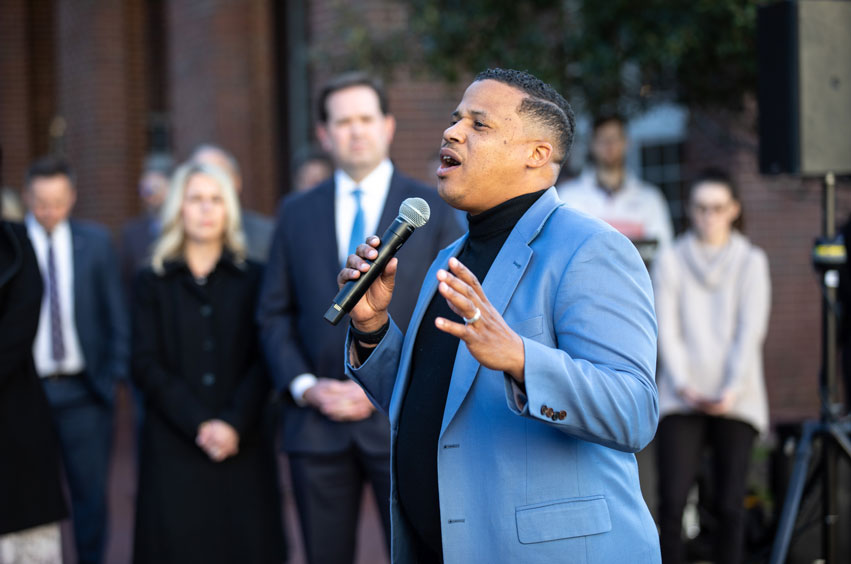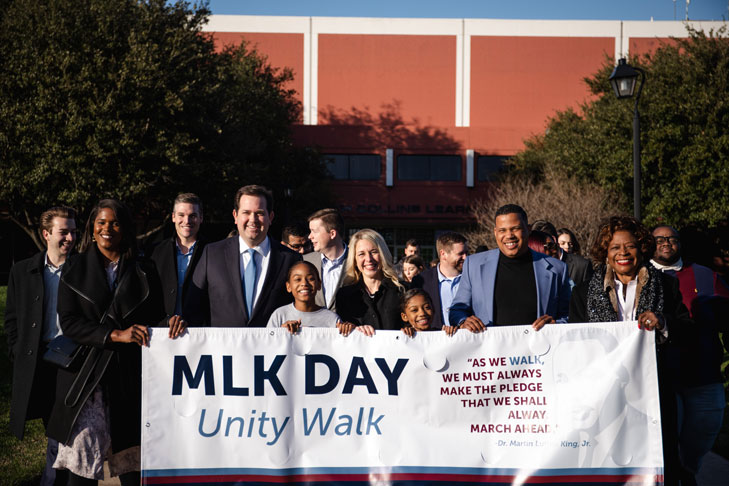Our Common Humanity: Reflections on the Vision and Legacy of Dr. King

Born in the upper Midwest in the late ’70s, I was raised in an affluent all-white neighborhood and attended an all-white church in a city that to this day is 70% white. We never talked much about King’s legacy that I can remember in our home. I had only two black acquaintances in high school and no close black friends while attending a Bible college located in downtown Chicago. Born decades after the passing of the Civil Rights Act of 1964 and King’s non-violent activism, my day-to-day experiences reflected little of Dr. King’s vision for harmonious racial diversity.
Many years later, I live in a Southern Dallas city, which statistically is 55% black and 36% white and ranks in the top 20 of diverse suburbs in the DFW Metroplex. Moving into this community took some adjustment to be honest, and I had to come to terms with the unawareness of my own hidden and previously unchallenged prejudices coming to the surface.
Since then, I have realized that a significant part of uprooting racism and prejudice, whether conscious or unconscious, is through living and working and eating and playing together, which helps in removing objectification of others that builds walls and replaces it with experiences of our shared humanity. This is the very thing that Dr. King dreamed of as he fought tirelessly to uphold the principles of moral law, the revelation of God’s Word, the created natural rights of human equality enshrined in our country’s founding documents which he rightly stressed should protect people of all skin color, and in defense of the established federal law prohibiting policies of segregation that were keeping blacks under oppression. This he did even at the cost of his own welfare, and eventually life.
Dr. King courageously pressed for equal rights and treatment of blacks through civil negotiation and “direct action” protests that would influence lawmakers and law enforcement officials. Beyond outward changes in law and congressional policy, King also dreamed that after such a long night of oppression, a marginalized people would be empowered to value themselves and know their own worth as equals and come into the full flourishing of their long-awaited freedom.

As much as King’s legacy brought our nation into the light of moral progress, continuing racial tension and estrangement shows that it remains entrenched and perpetuated within our families and communities and that these are among the places where it remains to be cut down. Even more is the need to uproot suspicion and hatred from the individual human heart by teaching active respect for all people made in the image of God and loved by Him, of Jesus’ commandment to be a loving neighbor to all, and of the incompatibility of celebrating freedom and prosperity while it is systematically denied to or hindered from others on the basis of skin color.
Upon reflection, unlike my own childhood, a day for my children involves greater racial diversity and inclusion as they are growing up in a neighborhood, city, school, and church that is more racially diverse and more reflective of King’s vision than I had, and I am thankful as a parent that they are starting farther along the road than I did, but it doesn’t end there.
Dr. King’s call for racial equality and justice in America is far from fulfilled as we enter this new decade. That unfinished call goes beyond the starting point of awareness and a change of mind to move toward individual and collective accountable action, including participating in constructive dialogue, hiring without prejudice, conscientious engagement in civic life, and joining together to ensure a fair and impartial justice system, as well as ending cycles of poverty and educational disadvantages in underprivileged communities.
We must come to see that human progress never rolls in on wheels of inevitability. It comes through the tireless efforts and persistent work of men willing to be coworkers with God, and without this hard work time itself becomes an ally of the forces of social stagnation (“Letter from a Birmingham Jail”).
In reflection today on the impact King had in his own generation and continues to have to this day, we know that there is still a mountain to climb but we can share Dr. King’s hope that progress can be achieved. As King himself stated in his “I Have A Dream” address from the steps of the Lincoln Memorial in 1963, “unearned suffering is redemptive.” It was a principle modeled by King, and it was perfectly embodied by Jesus, whose Kingdom has far outlasted the religious leaders and political empire of His day - He who also once assured tired and hungry crowds with hope that the “meek shall inherit the earth.”
Dr. Michael Whiting is the Director of Written Content in University Communications at Dallas Baptist University.








